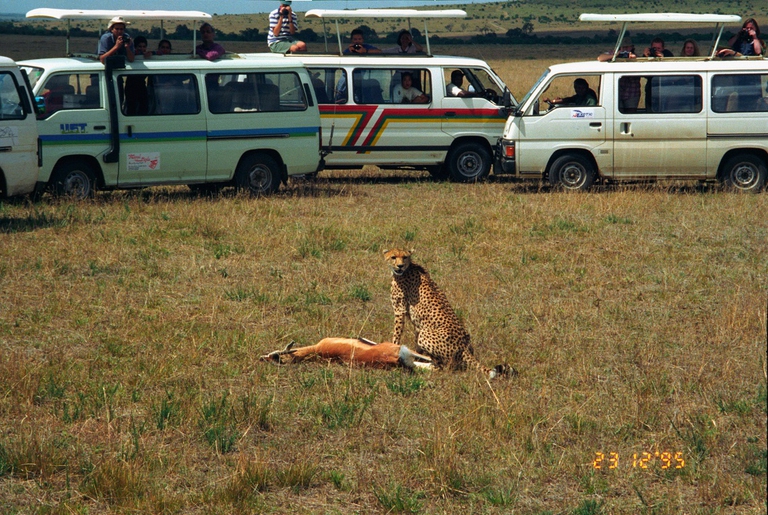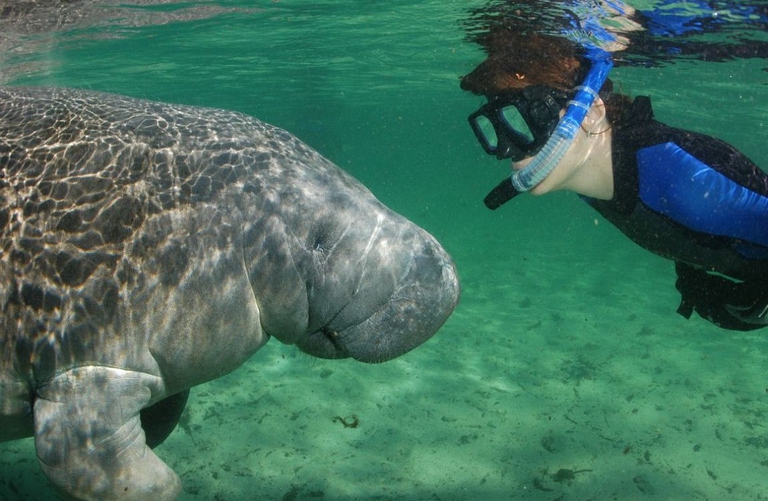
A report by Ember explains that in 2025 electricity generation from renewables (solar, wind and hydropower) surpassed that from fossil fuel sources.
Ecotourism, which means travelling in a responsible and respectful way towards the environment and ecology and favouring natural protected areas and parks, is growing steadily. Admiring wildlife in its natural environment is a unique emotion, and this kind of tourism is promoted to finance the conservation of natural areas and sustain local economies.
Ecotourism, which means travelling in a responsible and respectful way towards the environment and ecology and favouring natural protected areas and parks, is growing steadily.
Admiring wildlife in its natural environment is a unique emotion, and this kind of tourism is promoted to finance the conservation of natural areas and sustain local economies. Yet, this growing love for nature could be a threat to nature itself, particularly to wildlife.
Such risk has been highlighted by a study carried out by Professor Daniel Blumstein, of the University of California, published by Trends in Ecology and Evolution magazine. Ecotourism annually generates more than 8 billion visits to protected areas all over the world. According to the study, the fact that animals are getting used to human presence could modify their behaviour, making them more vulnerable to poachers and predators.
“If individuals selectively habituate to humans and if invasive tourism practices enhance this habituation, we might be selecting for or creating traits or syndromes that have unintended consequences, such as increased predation risk,” said Blumstein. “Even a small human-induced perturbation could affect the behaviour or population biology of a species and influence the species’ function in its community.”
Human familiarity could be harmful for both herbivores and predators. Herbivores lower their guard and become bolder with natural predators and poachers, whilst carnivores, which are more elusive, could be discouraged by the huge visitor flows and, by result, could give up hunting in certain areas.
Researchers are trying to understand, in details, how different animal species react to man’s presence, in order to establish the exact exposition levels that could threaten animals’ survival.
Whilst waiting for new details and results, it is possible to adopt good practices. For example, if we meet wild animals, we should keep ouselves distant, be quiet and, most of all, not feed them. We must remember that into forests, woods, and oceans we are guests and, despite our love, it’s better animals to distrust us.
Siamo anche su WhatsApp. Segui il canale ufficiale LifeGate per restare aggiornata, aggiornato sulle ultime notizie e sulle nostre attività.
![]()
Quest'opera è distribuita con Licenza Creative Commons Attribuzione - Non commerciale - Non opere derivate 4.0 Internazionale.
A report by Ember explains that in 2025 electricity generation from renewables (solar, wind and hydropower) surpassed that from fossil fuel sources.
The Tyler Prize, considered the “Nobel Prize for the Environment,” has been awarded to Toby Kiers, an American biologist working in Amsterdam.
Belgium is one of the countries most exposed to climate change. Dune–dikes are a solution to curb sea-level rise.
Between October 2024 and September 2025, the average temperature in the Arctic was 1.6 degrees Celsius higher than during the 1991–2020 period.
Undeclared conflicts of interest, paid authors, lack of transparency: one of the most cited studies on glyphosate, published in 2000, has been retracted.
The Copernicus service has released data for the first eleven months of 2025: global warming is set to come close to last year’s record.
The European Council and Parliament have reached an agreement on the European Commission’s proposal to deregulate new GMOs. But farming, organic agriculture, and environmental organizations are calling for it to be stopped.
The world’s second-largest producer has taken a historic decision. However, farms will have until 2034 to shut down.
A Greenpeace report denounces Russia’s political and economic model: a nexus of extractivism, authoritarianism and war that is destroying the environment, with serious repercussions for the global ecosystem.










